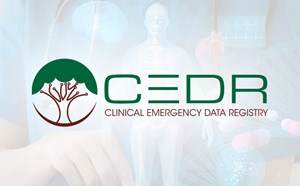
Industry Insights
Dr. Gowda: What is your job title at this time?
Dr. Park: I’m Director of Medical Informatics for a pharmaceutical company focused on immuno-oncology drug development called Beigene.
Dr. Gowda: How did you make the decision to transition?
Dr. Park: The decision to transition was based on an opportunity that opened for full time informaticist. The company was looking for a person with a clinical background to work with clinical trial data.
Dr. Gowda: What was your role as an informatician before taking on this most recent position?
Dr. Park: I had a programming background and was on the research pathway in secondary data analysis for electronic health records at Weill Cornell Medicine.
Dr. Gowda: How did you get connected with your current company?
Dr. Park: I was fortunate enough to meet several contacts through networking. When this position opened up, one of my contacts had reached out to see if I was interested.
Dr. Gowda: What is your role now?
Dr. Park: As a clinical informaticist working for a biopharmaceutical company, I bridge the gap between medicine and health information systems. As healthcare data is, not surprisingly, complex, applying my domain knowledge of clinical medicine has helped tremendously with the flow and management of data.
Dr. Gowda: How does this role compare with a startup?
Dr. Park: At a startup, one will wear many hats. On one day, you’ll be a clinician; on another day, a business person; and another, an informaticist. In a bigger company, the roles are generally more defined and your job will typically fall into one job description. However, that being said, being in a larger company does provide opportunity to interact with other experts.
Dr. Gowda: Do you code in your current position?
Dr. Park: The majority of my work is in the translation of healthcare knowledge to my engineers and scientists, which essentially makes me an educator!
Dr. Gowda: Do you have any advice to budding informaticists?
Dr. Park: Networking is key! And do not be afraid to reach out to your hospital’s informaticist if you are interested in informatics.
Dr. Gowda: Do you think the demand for informaticists will continue to increase?
Dr. Park: Predicting the future can be challenging. However, with the increasing interest in healthcare technology everywhere, I suspect that the future of informatics will have a bright future.
We also discussed his ACEP 2020 Big Data: Information Archeology talk. Overall the talk gave a broad overview of the role of informatics including an overview of ML models such as: logistic regression, random forest, neural networks. Healthcare interoperability with HL7 and FHIR standards and the role these standards play in data exchange. In addition, he discussed the process of data extraction and visualization and the need for cybersecurity and how to limit vulnerabilities with strong password protection and encryption.
Joel Park, MD, MS, FACEP
Director, Medical Informatics and Health Information Systems at BeiGene



